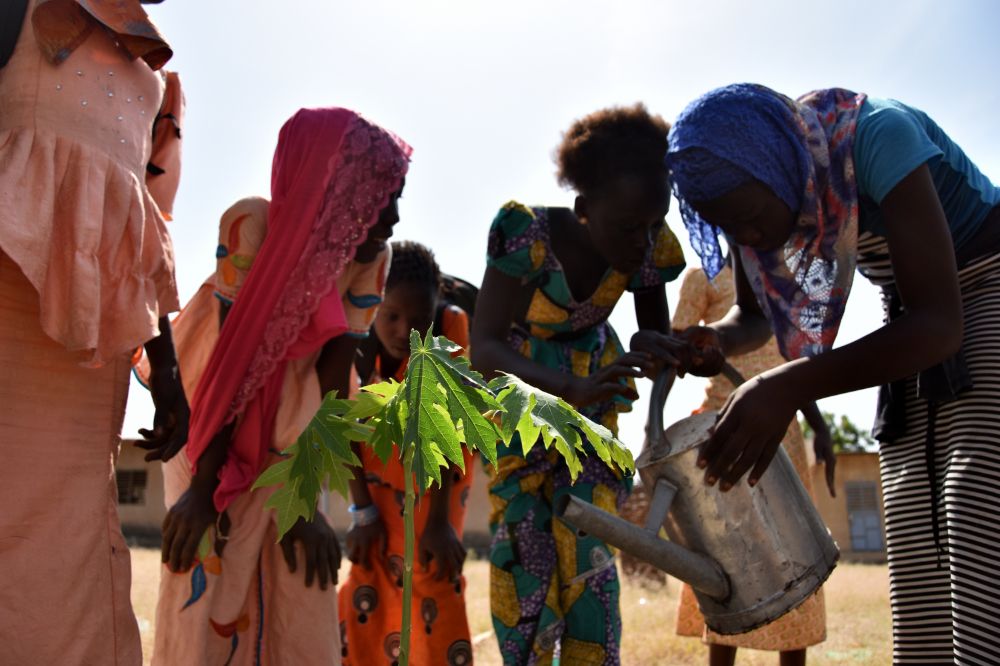In the Sine Saloum region of Senegal, a project financed by Reforest'Action and implemented by Nébéday places a central role in educating children about environmental issues. Throughout the three-year project, a wide range of educational approaches are deployed to involve the younger generations, who will be responsible for preserving the restored ecosystems and their natural resources in the future. This educational reforestation project stands out for its originality and the deep commitment it inspires in local communities.
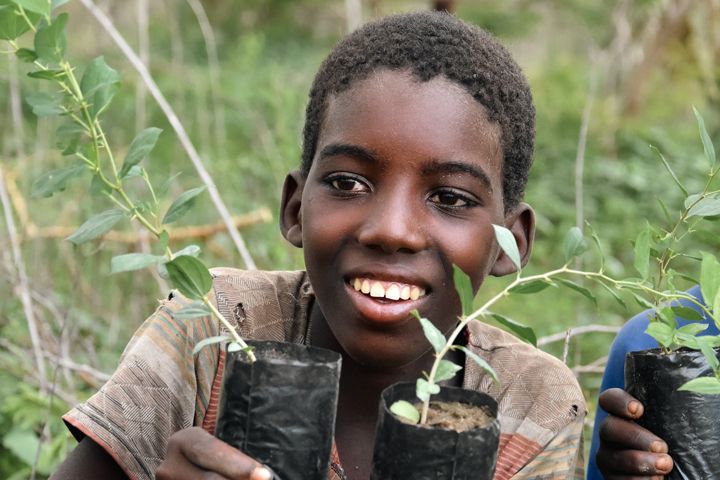
An educational reforestation project that puts children at the center
In Senegal, charcoal production, illicit timber trafficking, the proliferation of bush fires and livestock roaming are responsible for the country's overall forest loss. In sixty years, Senegal has lost almost half its forest area, including mangroves. The disappearance of forests accentuates soil erosion and salinization in coastal areas, estuaries and continental lands, leading to a decline in agricultural activity and impoverishment of the rural population. Against this backdrop, Reforest'Action is financing a reforestation project entitled GALA ("Grandir Avec Les Arbres"), run by the Senegalese association Nébéday. In the departments of Fatick and Thies, in the Sine Saloum region to the north of Gambia, the project involves around a hundred schools and several thousand pupils in the deployment of three ecosystem regeneration components.
In the villages associated with the project, the schools selected by Nébéday and the regional IEF (Inspection de l'Education et de la Formation) set up nurseries around which students receive initial training as nurserymen, so that they can become self-sufficient in tree production. The trees are then planted within the schools and on land belonging to the students' families, or around their homes. Among the species selected, high-growing species such as Cassia Siamea and Delonix regia provide shade for playgrounds and family plots. Fruit species, such as cashew, papaya and lemon, have been chosen for their traditional role in the local diet. Moringa, considered a superfood with multiple benefits, has also been introduced. Planted in agroforestry, these trees will contribute to the long-term food security of families.
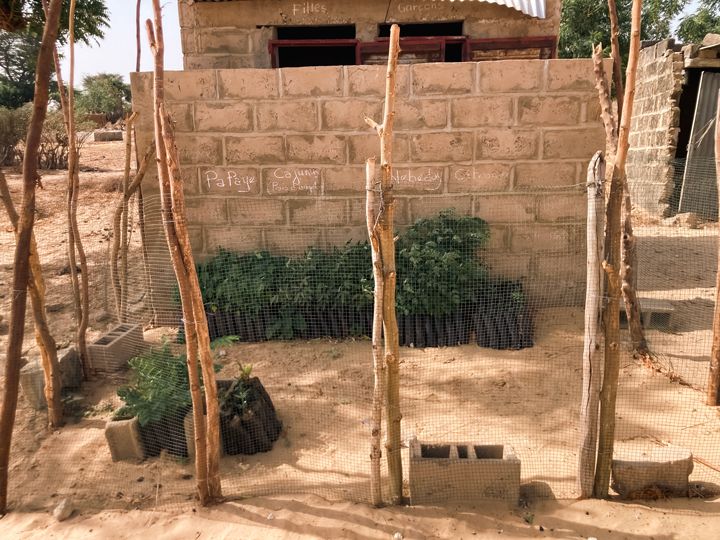
At the interface between land and sea, along the Saloum delta, degraded pockets of mangroves have been identified by Nébéday to involve children in their restoration, while raising awareness of the importance of preserving these forests.
In the continental forests, the schools are also taking part in planting sessions to regenerate these ecosystems and contribute to their conservation, using palm-root trees, one of the constituent species of the Sangako, Samba Dia, Wélor and Djilor classified forests. This species has many traditional uses for local communities: making bags, baskets, furniture and even roofs from its leaves, extracting the sap to produce palm wine, eating the fruit itself as part of the family diet... The restoration of these forests thus offers a direct impact and high added value for the villagers.
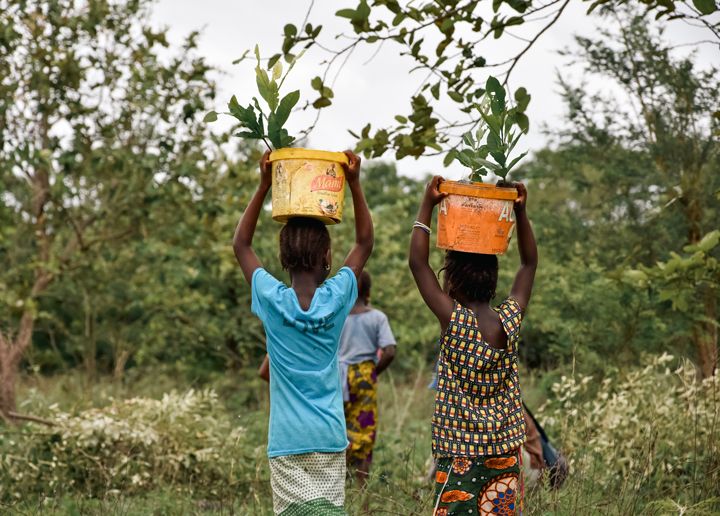
The life of the project: a new year of environmental education in schools
Initiated at the end of 2021, the project began by setting up tree nurseries in schools during 2022. During this first year, 38,782 trees were planted in schools and on family estates. The summer of 2022 saw the organization of six "Nature Camps" sessions, during which 300 children discovered forest and mangrove ecosystems and participated in their reforestation. Through these activities, 24,000 palm trees and 314,000 mangroves were planted.
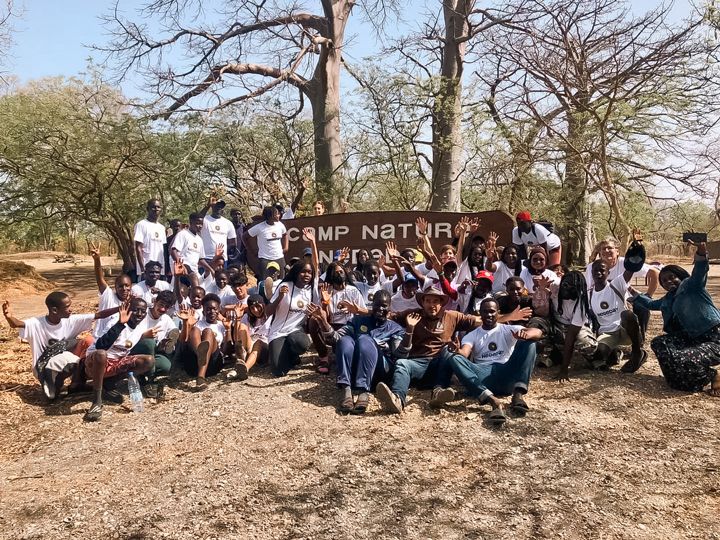
With the start of the 2022 school year, a new year of environmental education began for the 7,000 pupils involved in the project. From November 2022 to June 2023, teams from our partner Nébéday made six visits to the schools. On the program: raising awareness of ecosystem degradation and the importance of regeneration, learning about the life cycle of trees, waste management training, educational film screenings, nursery maintenance, new tree production and a composting workshop. The year ended in June 2023 with the planting of the trees produced by the students. A total of 408 trees were planted in school playgrounds, and a further 23,065 trees were taken home by the children to be planted in their respective homes. At the same time, 20,200 mangrove trees were planted in the Saloum delta, and 14,500 walnut trees were planted in the Samba Dia, Wélor and Djilor forests.
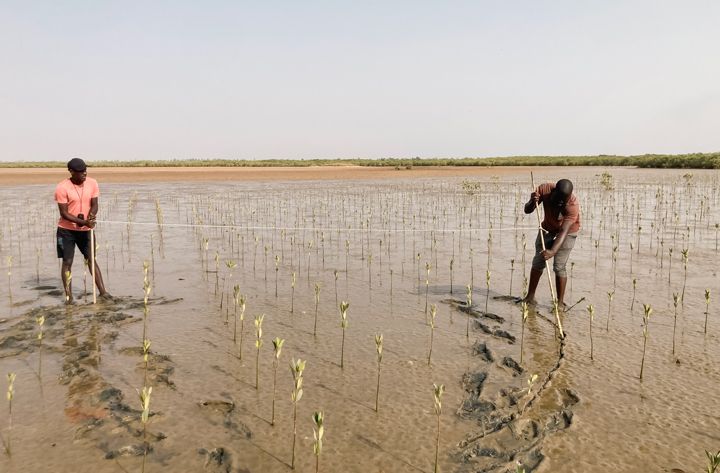
Community enthusiasm, a guarantee of the project's success
In April 2023, an audit mission led by Yori d'Aquino, Project Officer for Reforest'Action, confirmed the good operational progress of the project and the enthusiasm of the local communities. In addition to the quality of nursery maintenance, which demonstrates the commitment of the beneficiaries, Yori was also able to observe the good development of the trees planted over the two years of the project, and the rigour of the monitoring activities carried out by Nébéday. Discussions with local communities revealed that the project had been taken on board by the villagers, and in particular by the parents of the pupils involved. This is borne out by the words of the Ngohé Mbougel village chief, Léopold Coumakh Ndiaye, who, interviewed by Reforest'Action, attests to the many benefits of the project. While the trees planted contribute directly to feeding the families, they have also helped to create a genuine community development around the children, and to raise awareness of current environmental issues in Senegal.
